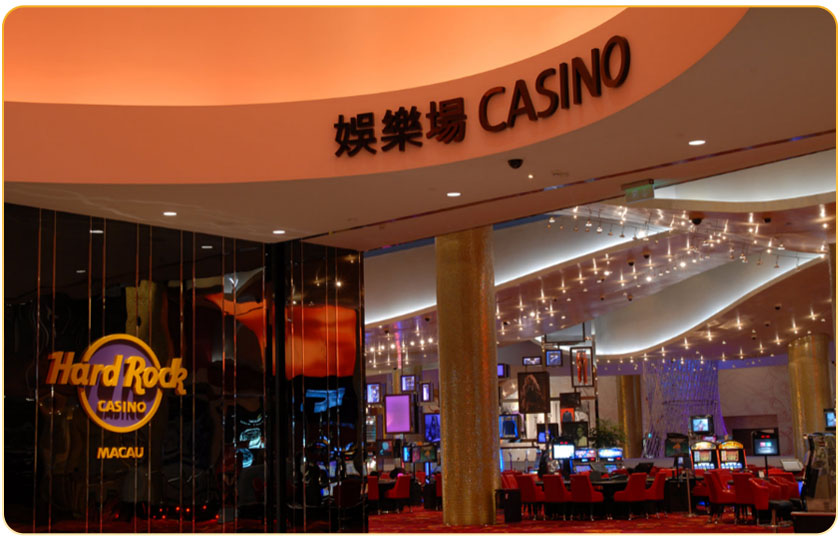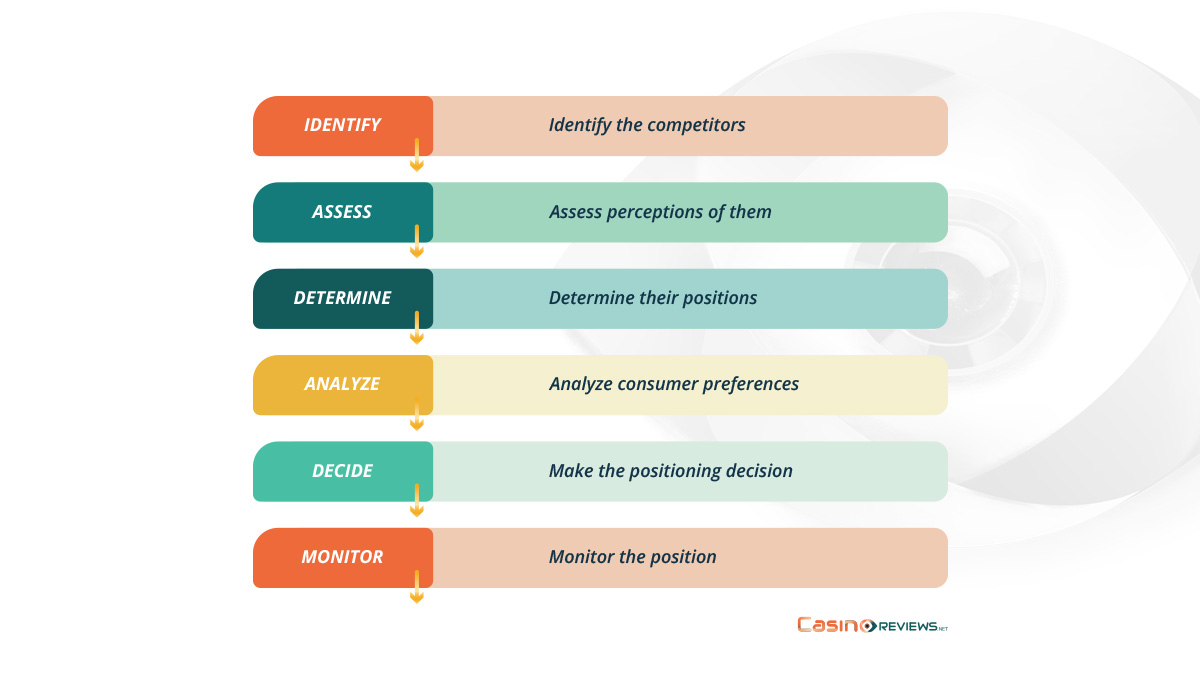Positioning Your Casino for Increased Customer Loyalty and Retention

Positioning is a fundamental aspect of brand strategy. The process of brand positioning begins with gaining a robust understanding of a firm's distinctive offerings, its target markets, and its competitors. The positioning statement becomes the bedrock of marketing strategy and provides direction for designing marketing offers and communication. An effective positioning statement can be the difference between a good brand and an iconic one.
Victims of Ill-Conceived Positioning
Let's go back in time. The year is 2009. Melco, one of the six concessionaires in Macau, has just opened its sprawling glitzy new property, The City of Dreams. The property initially housed the Crown Towers Hotel, The Grand Hyatt, and the Hard Rock Hotel.
The second floor of the property featured the Hard Rock Casino, beautifully appointed with musician memorabilia from the sixties. This floor also had the Flame Bar, with a distinctive Rock and Roll flavor. The female casino croupiers were dressed in short leather skirts, boots, and attractive red tops. Background music was a throwback to the sixties. All in all, the Hard Rock Casino was an authentic representation of the Rock' n' Roll era in the 1960s.

Figure 1: The Hard Rock Cafe and Casino, Macau
The themed casino did not last very long. Within a few years of opening, the whole floor was redesigned. The blackjack tables were replaced with slot machines, and the sexy dealers were gone. Then in 2017, Melco Resorts announced that it will drop the Hard Rock brand from its City of Dreams property portfolio.
What happened? The truth of the matter is that the Hard Rock Casino never got any traction in Macau. The casino space remained mostly vacant, and I recall umpteen times when I was the only customer at the Flame Bar. To understand this debacle, one needs to step back into history, to the sixties when Rock' n' Roll came into its own and the time that China experienced its cultural revolution.
The sixties were the heydays of Rock' n' Roll. It was also the time that Mao Zedong launched his Cultural Revolution through his Little Red Book. Red Guards attacked anything which was labeled bourgeois or revisionist to sustain revolutionary fervor in China. Rock music was but one casualty of the revolution.
Consequently, Chinese customers had little or no familiarity with artists like Jimmy Hendricks, Frank Zappa, The Rolling Stones, or even The Beatles, whose photos and musical instruments adorned the walls of Hard Rock Casino. Therefore, it should come as no surprise that the ambiance and décor of The Hard Rock Casino did not resonate with the overwhelmingly Chinese clientele of Melco. A beautifully appointed casino property could not turn a profit.
The story would have been different if this casino targeted the hundreds of thousands of expats living in Hong Kong and Macau. The Hard Rock name has a special soft spot in the minds of most Westerners. Western expats would have totally relished the Hard Rock Casino and Café experience had Melco targeted them in its marketing communications. Instead, Melco tried to attract customers from China, for whom Hard Rock meant absolutely nothing. In effect, the property succumbed to a failure in positioningi.
What Is Positioning?
The brand position represents the key feature, benefit, or image that it stands for in the collective psyche of your target market. Kotler and Keller (2016) define positioning as "the act of designing the company's offering and image to occupy a distinctive place in the minds of the target marketii." Brand Positioning is the central idea that encapsulates your brand's meaning and distinctiveness vis-à-vis competitive offerings. It is your positioning that forms the basis of all successful marketing communications. Positioning tells you who to target, what to say, and what media and message vehicles to use in delivering your message.
Al Ries and Jack Trout, pioneers in the field of positioning, argue that positioning is not about creating something new and different. It's about latching on to what's already in the prospect's mind. It's about bridging the mental connections that already exist.
The authors write, "The mind, as a defense against the volume of today's communications, screens and rejects much of the information offered it. In general, the mind accepts only that which matches prior knowledge or experience."iii As we saw in the opening vignette in this article, Hard Rock Casino did not succeed in its positioning attempts with customers from Mainland China. There was nothing in the minds of the target segment about Rock' n' Roll for the brand to work upon.
Understanding the Human Mind in Regards to Casino Brand Positioning
Five key facts about humans and their minds need to be acknowledged before embarking on casino brand positioning:
- Minds are limited
To minimize information overload and mental dissonance, humans are very selective about the information they expose themselves to, what they pay attention to, and what information or associations they want to store in memory. For the most part, the only information that is consistent with existing mental associations is retained; mismatches will be filtered out and blocked.
- Humans hate confusion
There is often a temptation on the part of casino brands to pack several disparate themes in the positioning statement. The California Grand Casino, for example, designed a "We play" casino ad depicting several demographic segments, with an actor from each segment providing a reason why they play at the casinoiv.
The ad copy goes like this, "We play for laughter and the stories, we play for the win, we play for the challenges, we play for the best action in the Bay area." While not mutually contradictory, these disparate concepts could confuse the target market. In this case, the company tried to appeal to everyone, not realizing that appealing to everybody in effect means not having a positive impact on anybody.
Clancy and Krieg (2000) argue that wherever possible, marketers should try to convey the brand position using one powerful ideav. This idea is sometimes referred to as the brand mantra. A brand mantra is a short, three- to five-word phrase that captures the irrefutable essence or spirit of the brand positioning.
- Humans tend to be inherently risk-averse
While casinos exist to cater to people's desire for risk and adventure, the brand positioning should consider some of the social, physical, and psychological risks that people may want to avoid. Positioning such as "Great entertainment with friends" may not be well-received in a society where there exists societal disapproval of gambling. In some suburbs of Sydney in Australia, physical safety is an important choice criterion when deciding on a gaming venue to visit. Casinos could use the safety theme to counter the risk of physical harm felt by customers.
- Human minds are not readily amenable to change
While it is possible to create new beliefs that run counter to existing beliefs in people, it is certainly not an easy process. To change beliefs, a fundamental change in underlying attitudes is needed. It is much easier for casino brands to latch on to people's existing beliefs while positioning. For example, stubbornness of ingrained beliefs and attitudes is one of the reasons why campaigns discouraging drink driving do not work in many countries.
- Humans can easily lose focus
We talked about humans' aversion to confusion. Many times, a new advertising agency tries to reposition a client's brand as a way to impress the new client. According to Atlanta search consultancy, The Bedford Group, "In 1984, the average client-agency relationship tenure was 7.2 years. By 1997, that number fell 25% to 5.3 years. Today the average client-agency tenure is thought to be less than three years." If a casino brand were to reposition itself every time there is a change in ad agency, it would give rise to very blurred positioning. The target market would be at a loss to determine what the brand exactly stands for.
Designing a Positioning Strategy
Brand Positioning is a six-step process. The steps involved in positioning strategy are listed in Figure 2. The first step is to identify your competitors. Depending on the casino's target market, competitors may be local, regional, or global. Given the current proliferation of integrated resort casinos all over the world and many chasing the same "good" players, the competitive landscape for most large casinos has become decidedly global. Also, the competition may not be restricted to the other casinos. Sometimes, substitute products like movies, theme parks, or the beach may also present themselves as competitors to casino gambling.
The next step is to understand how your targeted segments perceive your competitors. Gathering this information requires in-depth market research. Focus groups and survey research are usually good techniques to collect customer data on perceptions about competitors.
Perceptions data will enable casinos to understand competitive positioning. Knowing competitors' positions should yield insights into what real estate is "taken" in the minds of customers, as well as which competitors can be "evicted."
The next step is to understand customers' preferences. Not all segments will have the same needs, desires, or inclinations. The casino needs to identify segments whose priority of preferences are most likely to match what the firm can offer.
By understanding customer preferences and the positioning of competitors, the casino can choose a position that is most likely to succeed with its target markets. The chosen position is encapsulated in the brand mantra. The position should be simple to communicate to the target market, inspirational for both the target market and employees and one that cannot easily be copied by competitors.
Ideally, the brand position should appeal to both the rational and emotional sides of consumers' minds. Keller and Swaminathan write, "… it is important that a duality exists in the positioning of a brand such that there are rational and emotional components. In other words, good positioning contains points-of-difference and points-of-parity that appeal both to the head and the heart"vi.
Having decided on a position, the firm needs to offer a marketing mix that is consistent with the positioning. The position, once created, needs to be monitored for relevance and salience at regular intervals. Using an iconic architecture of an integrated resort in positioning, for example, will only be effective for a limited period. The same logic applies to the use of celebrities in reinforcing positioning. The firm needs to be vigilant about scandals and controversies associated with the celebrity that often erupt without much warning.

Figure 2: The Positioning Strategy Process
Benefits of Brand Positioning
Your casino positioning strategy is the cornerstone of your brand strategy. Effective brand positioning offers several key benefitsvii. The key benefits of effective positioning are:
- Laser-Like Focus on Who You Are Serving
Since positioning happens inside the minds of the target market, its effectiveness is predicated on a firm's focusing all attention on the target. Casinos will, during the positioning exercise, gain an accurate understanding of their customers--who they are, what they like, and what their personalities are. Operators can then deliver through their services and messaging what the target market wants. This will boost revenues and create customer loyalty.
- Differentiate from Competition
Brand positioning involves understanding one's brand in relation to the competition. Points of parity—where the brand is similar to competitors' offerings—as well as points of differentiation need to be assessed. Having understood what the competitors do well and what they do not do well, a casino will be able to design an offer and accompanying marketing messages which are demonstrably different from the competition and valued by its targeted customers.
- Increased Recall
Once a brand is cemented in the minds of the target market, consumers develop strong and lasting associations with the brand. The brand is recalled in deciding to make a visit to the casino. Positioning provides customers with a compelling reason to remember your brand so that it is included in the consideration set of the buying decision-making process.
- Brand Storytelling
Humans are hardwired to be influenced by stories. Brand storytelling is the use of authentic, emotional stories to drive growth and foster customer loyalty. Well-refined positioning strategy provides a solid understanding of your casino customers, which can then be used to build stories that resonate with the audience and enable making that vital human connection.
- Justified Pricing Strategies
Positioning embeds brand value in the minds of the target market, thus making it easier to move away from destructive price competition. It allows the casino operator to talk about the difference from competition and the value of that difference.
- Clarity and Vision for Your Brand Strategy
Positioning is the core foundation of your brand. Brand vision projects what your casino brand will look like in the future. For example, many powerful brick-and-mortar casinos such as Wynn, Caesars, and Las Vegas Sands are gearing up to compete in the online space. Creative positioning by these brands will enable them to safeguard their position in the future by creating guard rails for brand vision and strategy.
- Greater Understanding of Your Audiences at an Intimate Level
To generate customers' loyalty and affection toward a brand, businesses need to first understand the needs, desires, motives, personalities, attitudes, and lifestyles of the target market. Intimate understanding of the determinants of customer behaviors allows service providers to empathize with customers so that customers feel understood and appreciated. Marketing communication informed by sound positioning allows companies to make that human connection which is so vital in customer relationships.
- Increased Relevancy in Your Niche
The underlying premise of brand positioning is that you cannot truly resonate with anybody if you try to be all things to all people. Successful positioning demands that we are viewed as more relevant (in comparison to competition) by a specific audience. Perceptions of relevance and value within a well-defined niche are what drives customer loyalty and retention.
- Better Decision Making
Around BCE 500, Sun Tzu, the revered Chinese general and military strategist wrote, "If you know the enemy and know yourself, you need not fear the result of a hundred battles. If you know yourself but not the enemy, for every victory gained, you will also suffer a defeat. If you know neither the enemy nor yourself, you will succumb in every battle."
Similar advice applies to winning in the casino marketplace. Through positioning, casinos will develop a complete understanding of their competitors as well as an objective assessment of the strengths and weaknesses of their own brand. Such understanding, followed by an obsession with serving their targeted customers, enables casino companies to make more focused and creative business decisions.
Conclusion
A few final comments will be useful to help guide positioning efforts. Despite its indomitable advantages, most casinos do not give brand positioning the attention it deserves. A well-crafted positioning strategy is based on a solid understanding of a firm's competitors and on an intimate knowledge of the target market the firm decides to pursue.
When undertaking competitor analysis, clear points of parity and points of difference between the operator's brand and competitors' brands should be developed. In creating a positioning strategy, marketers often define a brand mantra. The brand mantra is similar to brand essence, acting to create a mental filter to screen out brand-inappropriate marketing activities. The brand mantra helps ensure that all employees and external marketing partners understand how the brand should fundamentally be represented to the target customers.
Brand positioning should guide the current marketing strategy and also provide enough latitude for the casino to grow and branch out if need be. Good positioning, therefore, has a foot in the present and a foot in the future. It needs to be somewhat aspirational so that the brand has room to grow. Finally, great positioning captures both the hearts and the minds of the targeted customers and, in doing so, distinguishes outstanding brands from the also-rans.
Read more:
iI am thankful to Mike French for our discussion on The Hard Rock Casino many years ago.
iiKotler, Philip, and Keller, Kevin L. (2016). Marketing Management (15th ed.), Pearson Education.
iiiRies, Al and Jack Trout (2001), Positioning: The Battle for Your Mind (20th Anniversary Edition), McGraw Hill.
ivhttps://youtu.be/K7kps2jhp1g?t=21, retrieved April 25, 2022.
vClancy, Kevin and Peter Krieg (2000). Counter-Intuitive Marketing: Achieve Great Results Using Uncommon Sense. The Free Press.
viKeller, Kevin, and Vanitha Swaminathan (2019). Strategic Brand Management: Building, Measuring, and Managing Brand Equity. Pearson Education.
viiThis discussion is based on, “10 Powerful Advantages of Brand Positioning,” https://brandmasteracademy.com/advantages-of-brand-positioning/, accessed April 29, 2022.





Review this Blog
Leave a Comment
User Comments
comments for Positioning Your Casino for Increased Customer Loyalty and Retention